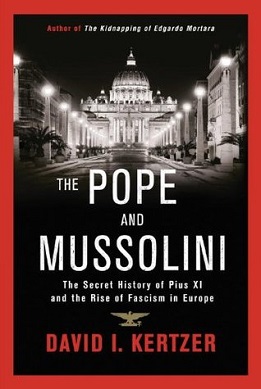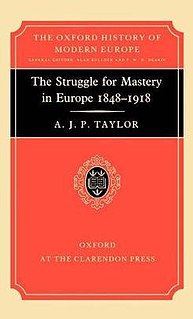 W
WThe Age of Capital: 1848–1875 is a book by Eric Hobsbawm, first published in 1975. It is the second in a trilogy of books about "the long 19th century", preceded by The Age of Revolution: Europe 1789–1848 and followed by The Age of Empire: 1875–1914. A fourth book, The Age of Extremes: The Short Twentieth Century, 1914–1991, acts as a sequel to the trilogy.
 W
WBandits is a book by Eric Hobsbawm, first published in 1969. It focuses on the concept of bandits within the mythology, folklore, and literature of Europe, specifically its relation to classical Marxist concepts of class struggle.
 W
WThe Age of Revolution: Europe: 1789–1848 is a book by Eric Hobsbawm, first published in 1962. It is the first in a trilogy of books about "the long 19th century", followed by The Age of Capital: 1848–1875, and The Age of Empire: 1875–1914. A fourth book, The Age of Extremes: The Short Twentieth Century, 1914–1991, acts as a sequel to the trilogy.
 W
WA Distant Mirror: The Calamitous 14th Century is a narrative history book by the American historian Barbara Tuchman, first published by Alfred A. Knopf in 1978. It won a 1980 U.S. National Book Award in History. The main title, A Distant Mirror, conveys Tuchman's idea that the death and suffering of the 14th century reflect that of the 20th century, especially the horrors of World War I.
 W
WThe Eastern Origins of Western Civilisation, written by John M. Hobson in 2004, is a book that argues against the historical theory of the rise of the West after 1492 as a "virgin birth", but rather as a product of Western interactions with more technically and socially advanced Eastern civilization.
 W
WEurope: A History is a 1996 narrative history book by Norman Davies.
 W
WThe European Dream: How Europe's Vision of the Future Is Quietly Eclipsing the American Dream is a book, by Jeremy Rifkin published on August 19, 2004 by Jeremy P. Tarcher Inc. Rifkin describes the emergence and evolution of the European Union over the past five decades, as well as key differences between European and North American values. He argues that the European Union, which he describes as the first truly postmodern governing body, is already an economic superpower rivaling the U.S., and has the potential to become a full world superpower.
Fire in the Minds of Men: Origins of the Revolutionary Faith is a book about the spread of ideas written by James H. Billington, historian and Librarian of Congress. The book analyzes the ideas that inspired European revolutionary movements from the 1700s to the 1900s.
 W
WFraming the Early Middle Ages: Europe and the Mediterranean 400–800 is a 2005 history book by English historian Christopher Wickham at the University of Oxford. It is a broad history of the period between the fall of the Western Roman Empire and the transition to the Middle Ages, often called Late Antiquity.
 W
WThe Great Sea: A Human History of the Mediterranean is an award-winning book by the British historian David Abulafia. First published in 2011, it is a history of the Mediterranean Sea from 22,000 BC to the present time, and provides one of the most comprehensive treatments of the subject since the works of Fernand Braudel.
 W
WHow Europe Underdeveloped Africa is a 1972 book written by Walter Rodney that takes the view that Africa was deliberately exploited and underdeveloped by European colonial regimes. One of his main arguments throughout the book is that Africa developed Europe at the same rate as Europe underdeveloped Africa.
 W
WThe Inheritance of Rome: A History of Europe from 400 to 1000 is a 2009 history book by English historian Christopher Wickham at the University of Oxford. It is a broad history of the Early Middle Ages, the period after what is commonly called the fall of the Western Roman Empire. The book received mostly positive reviews.
 W
WThe Movement of the Free Spirit: General Considerations and Firsthand Testimony Concerning Some Brief Flowerings of Life in the Middle Ages, the Renaissance and, Incidentally, Our Own Time is a 1986 book by former Situationist International (SI) member Raoul Vaneigem published in English in 1998 by Zone Books.
 W
WThe Pope and Mussolini: The Secret History of Pius XI and the Rise of Fascism in Europe is a 2014 Pulitzer Prize winner biography of Pope Pius XI about his relations with Benito Mussolini and rise of Fascism in Europe by David Kertzer. The book examined documentary evidence from the Vatican archives, arguing that Pope Pius XI played a significant role in supporting the rise of Fascism and Benito Mussolini in Italy, but not of Nazism in Germany.
 W
WPostwar: A History of Europe Since 1945 is a 2005 non-fiction book written by British historian and scholar Tony Judt who specialised in European history. The book examines six decades of European history from the end of World War II in 1945 up to 2005.
 W
WThe Pursuit of Glory: Europe 1648–1815, written by the British historian Timothy Blanning, was first published by Allen Lane in 2007. It met with very favourable reviews, was The Sunday Times history book of the year, and was reprinted in paperback by Penguin Books in 2008.
 W
WThe Reformation: A History is a 2003 history book by the English historian Diarmaid MacCulloch. It is a survey of the European Reformation between 1490 and 1700. It won the 2003 Wolfson History Prize (UK) and the 2004 National Book Critics Circle Award (US).
 W
WThe Struggle for Mastery in Europe 1848–1918 is a scholarly history book by the English historian A. J. P. Taylor and was part of "The Oxford History of Modern Europe", published by the Clarendon Press in Oxford in October 1954.
 W
WThe Moral Economy: Poverty, Credit, And Trust In Early Modern Europe is a 2014 economic history book by Laurence Fontaine. The book received mostly positive reviews.
 W
WVermeer's Hat: The Seventeenth Century and the Dawn of the Global World is a book by the Canadian historian Professor Timothy Brook, in which he explores the roots of world trade in the 17th century through six paintings by the Dutch Golden Age painter Johannes Vermeer. It focuses especially on growing ties between Europe and the rest of the world and the impact of China on the world, during what Brook sees as an "age of innovation" and improvisation.
 W
WThe Western Heritage is an American history textbook used for the study of Western civilization and European history. It was published in 1979, and has gone through ten editions. It was written by Donald Kagan, Steven Ozment, and Frank M. Turner. It soon became a "standard survey text" and is published in two volumes.
 W
WA World Lit Only by Fire is an informal history of the European Middle Ages by American historian William Manchester. Published in 1992, the book is divided into three sections: "The Medieval Mind", "The Shattering", and "One Man Alone". In the book, Manchester scathingly posits, as the title suggests, that the Middle Ages were ten centuries of technological stagnation, short-sightedness, bloodshed, feudalism, and an oppressive Church wedged between the golden ages of the Roman Empire and the Renaissance.
 W
WA World Restored: Metternich, Castlereagh and the Problems of Peace 1812-1822 is a book by Henry Kissinger that was published in 1957.